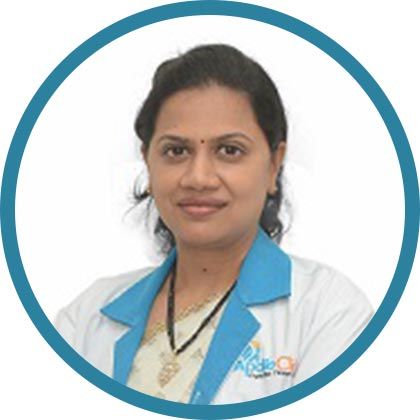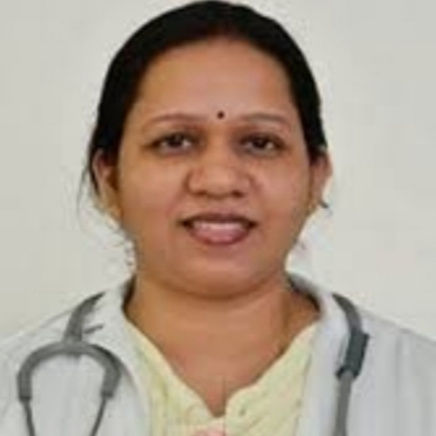How To Increase Femur Length During Pregnancy?
Discover practical tips on how to support healthy femur length growth during pregnancy through balanced nutrition, hydration, exercise, and regular prenatal care. Ensure optimal foetal bone development with expert-backed guidance.

Written by Dr.Sonia Bhatt
Last updated on 13th Jan, 2026
.webp?tr=q-80,f-webp,w-350,dpr-2,c-at_max 700w)
Introduction
As an expecting parent, ensuring optimal foetal growth and development is naturally a top priority. One aspect of foetal development that may concern parents is the femur length, which measures the baby’s thigh bone. A healthy femur length is a key indicator of skeletal health and growth.
If you're wondering how to support your baby’s femur growth during pregnancy, this article will guide you with simple, practical tips.
Understanding Femur Length in Pregnancy
The femur is the longest bone in the human body, and its length is measured during routine ultrasound scans to assess foetal growth. Doctors track femur length along with other parameters like head circumference and abdominal circumference to ensure the baby is developing well.
While genetics play a major role in determining bone length, maternal factors nutrition, health conditions, and lifestyle can influence foetal bone development.
Factors Affecting Femur Length
Below are the key factors that can influence foetal femur length during pregnancy:
1. Genetics – A baby’s growth is largely determined by genetic factors inherited from parents.
2. Maternal Nutrition – A well-balanced diet rich in essential nutrients supports bone development.
3. Maternal Health – Conditions like gestational diabetes or high blood pressure can affect foetal growth.
4. Placental Health – A healthy placenta ensures proper nutrient and oxygen supply to the baby.
5. Lifestyle Habits – Smoking, alcohol, or excessive caffeine can hinder foetal growth.
Consult Top Doctors for Personalised Treatment
How to Support Healthy Femur Growth
While you can’t drastically change your baby’s genetic growth potential, you can optimise their development with the following steps:
1. Eat a Nutrient-Rich Die
A well-balanced diet is crucial for foetal bone development. Focus on:
Calcium & Vitamin D – Essential for strong bones. Include dairy products, leafy greens, fortified cereals, and sunlight exposure.
Protein – Supports tissue and muscle growth. Eat lean meats, eggs, beans, and lentils.
Magnesium & Phosphorus – Found in nuts, seeds, whole grains, and fish.
Folic Acid & Iron – Important for overall foetal development. Include spinach, citrus fruits, and lean meats.
2. Stay Hydrated
Water helps in nutrient absorption and circulation, ensuring your baby gets the necessary minerals for bone growth. Aim for 8-10 glasses daily.
3. Take Prenatal Vitamins
Prenatal supplements, especially those with calcium, vitamin D, and folic acid, help fill nutritional gaps. Consult your doctor before choosing supplements.
4. Exercise Moderately
Gentle exercises like walking, prenatal yoga, or swimming improve blood circulation, which supports foetal growth. Avoid strenuous activities.
5. Get Enough Rest
Proper sleep and reduced stress help in hormonal balance, which positively impacts foetal development.
6. Avoid Harmful Substances
Quit Smoking & Alcohol – These can restrict foetal growth.
Limit Caffeine – High caffeine intake may affect nutrient absorption.
7. Regular Prenatal Checkups
Ultrasounds help monitor femur length and overall growth. If there are concerns, your doctor can guide you with personalised care.
When to Seek Medical Advice
If your doctor notices slower femur growth, they may check for:
Intrauterine Growth Restriction (IUGR) – A condition where the baby grows slower than expected.
Genetic Conditions – Rarely, short femur length may indicate chromosomal conditions.
Most of the time, minor variations are normal, but always discuss concerns with your doctor.
Final Thoughts
While genetics largely determine femur length, a healthy pregnancy lifestyle can support optimal growth. Focus on good nutrition, hydration, rest, and regular prenatal visits to give your baby the best start.
If you have any concerns about your baby’s growth, consult your doctor or book an appointment through Apollo 24|7 for expert guidance.
Consult Top Gynaecologists
Consult Top Doctors for Personalised Treatment

Dr Bhawna Garg
Gynaecological Oncologist
26 Years • MBBS, MS, (PGI MS ROHTAK) FELLOWSHIP GYNECOLOGY ONCOLOGY, (CANCER INSTITUTE CHENNAI)
Delhi
Apollo Hospitals Indraprastha, Delhi

Dr. Dhwaraga Jeyaraman
Obstetrician and Gynaecologist
16 Years • MBBS, MS OG, DGO
Chennai
Apollo Speciality Hospitals OMR, Chennai
(50+ Patients)
Dr. Sushma Krishnegowda
Obstetrician and Gynaecologist
20 Years • MBBS,DGO – Obstetrics & Gynaecology,DNB – Obstetrics & Gynaecology,Laparoscopic Training
Bengaluru
Apollo Hospitals Sheshadripuram, Bengaluru

Dr. S Asha Devi
Obstetrician and Gynaecologist
13 Years • MS.OG .,MRCOG (UK)
Chennai
Apollo Speciality Hospitals OMR, Chennai
(100+ Patients)

Dr. Vandana Sinha
Obstetrician and Gynaecologist
14 Years • MBBS, MS(Obs & Gyn), Fellow in Gynec-Onco. & Gynec Endoscopy
Ahmedabad
Apollo Hospitals Gandhinagar, Ahmedabad
(200+ Patients)
Consult Top Gynaecologists

Dr Bhawna Garg
Gynaecological Oncologist
26 Years • MBBS, MS, (PGI MS ROHTAK) FELLOWSHIP GYNECOLOGY ONCOLOGY, (CANCER INSTITUTE CHENNAI)
Delhi
Apollo Hospitals Indraprastha, Delhi

Dr. Dhwaraga Jeyaraman
Obstetrician and Gynaecologist
16 Years • MBBS, MS OG, DGO
Chennai
Apollo Speciality Hospitals OMR, Chennai
(50+ Patients)
Dr. Sushma Krishnegowda
Obstetrician and Gynaecologist
20 Years • MBBS,DGO – Obstetrics & Gynaecology,DNB – Obstetrics & Gynaecology,Laparoscopic Training
Bengaluru
Apollo Hospitals Sheshadripuram, Bengaluru

Dr. S Asha Devi
Obstetrician and Gynaecologist
13 Years • MS.OG .,MRCOG (UK)
Chennai
Apollo Speciality Hospitals OMR, Chennai
(100+ Patients)

Dr. Vandana Sinha
Obstetrician and Gynaecologist
14 Years • MBBS, MS(Obs & Gyn), Fellow in Gynec-Onco. & Gynec Endoscopy
Ahmedabad
Apollo Hospitals Gandhinagar, Ahmedabad
(200+ Patients)
